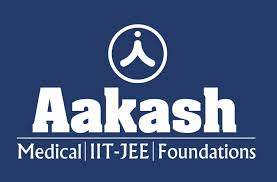Rakesh Tiwari and Akhtar Husain Khan, JJ.@mdashHeard Sri B.B. Jauhari, learned Counsel for the petitioners, Sri Satish Chaturvedi, appearing for respondents and perused the record. This writ petition is preferred for the following reliefs:
"(i) issue a suitable writ order or direction in the nature of mandamus commanding the respondents to fix the rank and seniority of petitioners similar to those of officers of the State Bank of India w.e.f. 1.1.1996 and not to reduce their service length and rank and petitioners be treated at par with the officers of the State Bank of India treating the respective date of joining in KNSB Ltd. similar to that in the State Bank of India;
(ii) issue a suitable writ order or direction in the nature of mandamus commanding the respondents to credit the amount of provident fund of petitioners alongwith its interest in the respective accounts of petitioners;
(iii) issue a suitable writ order or direction in the nature of mandamus commanding the respondents to release the arrears of salary including computer increment as per the 6th wage revision;
(iiia) issue a suitable writ order or direction in the nature of mandamus commanding the respondents to issue orders for payment of State Bank of India package allowance known as Special Compensatory Allowance (which is being paid to the officers who have joined their service prior to 1.11.1993 in State Bank of India) to the petitioners;
(iiib) issue a writ order or direction in the nature of certiorari quashing the order dated 17.6.2002 passed by respondent No. 2 which has been communicated through letter dated 21.6.2002 and has been annexed as Annexure No. S.A.-1 with the supplementary-affidavit;
(iv) issue any other writ order of direction to which this Hon''ble Court may deem fit and proper in the circumstances of the case;
(v) award cost of the petition to the petitioners;"
2. The reliefs claimed by the petitioners are in the backdrop that Kashi Nath Seth Bank Limited, hereinafter referred to as ''KNSBL'' was a Banking Company duly licensed by the Reserve Bank of India. It was amalgamated with the State Bank of India. After amalgamation, employees/officers of State Bank of India and their seniority etc. was to be fixed in terms of Chapter V of Notification No. S.O.-1010(E) dated 31.12.1995 published in the extra-ordinary gazette of India. Proviso 2 Clause (iii) of said notification is quoted below for ready reference:
"Provided that if any doubt or difference arises as to whether the qualification or experience of any of the said employees are the same as or equivalent to the qualification and experience of the other employees of corresponding rank of status of the transferee bank or as to procedure or principles to be adopted for the fixation of the pay of the employees in the scales of pay of the transferee bank the doubt or difference shall be referred to the Reserved Bank of India whose decision thereon shall be final."
3. It appears that after amalgamation of KNSBL, the petitioners requested the management of the State Bank of India and All India State Bank Officers Federation, Bangalore to settle the matter of fixation of their salary and seniority as claimed by them in the writ petition. The question of salary and seniority were initially not fixed, but considered later on reducing their seniority for every completed 2 years of service in KNSBL by making it equivalent to one year''s service in the State Bank of India. The grade of the officers was also reduced by one grade. It is in this backdrop that aggrieved, erstwhile employees of KNSBL who have preferred this writ petition claiming reliefs, aforesaid.
4. At the outset, a preliminary objection has been raised by Sri Satish Chaturvedi, learned Counsel for the respondent that fixation of salary after amalgamation and other various reliefs claimed by the petitioners do require decision of the facts on basis of documentary and oral evidence which is neither available on record nor is feasible before this Court under Article 226 of the Constitution of India to wade through voluminous records which require to be framed by oral evidence as to where each of the petitioner is to be placed for the purpose of his seniority and fixation of pay scale commensurate with it. According to him, the petitioners have an alternative and efficacious remedy of reference under section 10 of the Industrial Disputes Act (Central). In this regard he has also placed section 2(a) and 2(bb) of the Act. In support of his contention he has also relied upon a Full Bench decision of this Court rendered in the case of Chandrama Singh v. Managing Director, U.P. Cooperative Union, Lucknow and others 1991 (63) FLR 478 (Alld--FB), wherein, it has been held that in cases of termination of an industrial employee the remedy lies before the Labour Court which is alternative and efficacious remedy.
5. Learned Counsel for the petitioners does not deny the availability of alternative and efficacious remedy under the Industrial Disputes Act, 1947 (Central) or first the matter requires adjudication of facts from the relevant records of the employees who may be effected by the relief, as prayed for, if granted to the petitioners.
6. We have perused the reliefs claimed by the petitioners and the decision relied upon by learned Counsel for the respondent as well as section 2(a) of the Industrial Disputes Act, 1947, which defines appropriate Government to make reference to the Labour Court/Industrial Tribunal (Central). The relevant entry of aforesaid section reads thus:
"2. Definitions.--In this Act, unless there is anything repugnant in the subject or context,--
(a) "appropriate Government" means--
(i) in relation to any industrial dispute concerning any industry carried on by or under the authority of the Central Government, or by a railway company or concerning any such controlled industry as may be specified in this behalf by the Central Government or in relation to an industrial dispute concerning a Dock Labour Board established under section 5-A of the Dock Workers(Regulation of Employment) Act, 1948 (9 of 1940), or the Industrial Finance Corporation of India established under section 3 of the Industrial Finance Corporation Act, 1948 (15 of 1948), or the Employees'' State Insurance Corporation established under section 3 of the Employees'' State Insurance Act, 1948 (34 of 1948), or the Board of Trustees constituted under section 3-A of the Coal Mines Provident Fund and Miscellaneous Provisions Act, 1948 (46 of 1948), or the Central Board of Trustees and the State Boards of Trustees constituted under section 5-A and section 5-B, respectively, of the Employees'' Provident Fund and Miscellaneous Provisions Act, 1952 (19 of 1952), or the "Indian Airlines" and "Air India" Corporations established under section 3 of the Air Corporations Act, 1953 (27 of 1953), or the Life Insurance Corporation of India established under section 3 of the Life Insurance Corporation Act, 1956 (31 of 1956), or the Oil and Natural Gas Commission established under section 3 of the Oil and Natural Gas Commission Act, 1959 (43 of 1959), or the Deposit Insurance and Credit Guarantee Corporation established under section 3 of the Deposit Insurance and Credit Guarantee Corporation Act, 1961 (47 of 1961), or the Central Warehousing Corporation established under section 3 of the Warehousing Corporations Act, 1962 (58 of 1962), or the Unit Trust of India established under section 3 of the Unit Trust of India Act, 1963(52 of 1963), or the Food Corporation of India established under section 3, or a Board of Management established for two or more contiguous States under section 16, of the Food Corporations Act, 1964 (37 of 1964), or the International Airports Authority of India constituted under section 3 of the International Airports Authority of India Act, 1971 (48 of 1971),or a Regional Rural Bank established under section 3 of the Regional Rural Banks Act, 1976 (21 of 1976), or the Export Credit and Guarantee Corporation Limited or the Industrial Reconstruction Bank of India [the National Housing Bank established under section 3 of the National Housing Bank Act, 1987 (53 of 1987) or] [a banking or an insurance company, a mine, an oil-field] [a Cantonment Board] or a major port, the Central Government."
7. Further, section 2(bb) of the Act, defines banking company under which Reserve Bank of India as well as State Bank of India are covered. The section reads thus:
"2[(bb) "banking company" means a banking company as defined in section 5 of the Banking Companies Act, 1949 (10 of 1949), having branches or other establishments in more than one State, and includes 3[the Export-Import Bank of India 4[the Industrial Reconstruction Bank of India], 5[the Industrial Development Bank of India], 6[the Small Industries Development Bank of India established under section 3 of the Small Industries Development Bank of India Act, 1989 (39 of 1989)], the Reserve Bank of India, the State Bank of India [a corresponding new bank constituted under section 3 of the Banking Companies (Acquisition and Transfer of Undertakings) Act, 1970 (5 of 1970), 8[a corresponding new bank constituted under section 3 of the Banking Companies (Acquisition and Transfer of Undertakings) Act, 1980 (40 of 1980), and any subsidiary bank], as defined in the State Bank of India (Subsidiary Banks) Act, 1959 (38 of 1959)"
8. In our considered opinion, question of pay fixation as well as fixation of seniority of the employees as defined under sections 2(a) and 2(bb), aforesaid on the basis of documentary evidence can be considered before the Labour Court as the relief claimed by them regarding fixation of seniority can be looked into by the Labour Court/Industrial Tribunal which cannot only summon the voluminous records for the purpose of fixation of seniority and pay scales of each employee as well as may grant other benefits as claimed by them on basis of the documentary and oral evidence for the purpose of reliefs to the petitioners to which they as a matter of fact are found entitled. The writ petition is, therefore, dismissed on the ground of availability of alternative and efficacious remedy before the Labour Court. However, it is made clear, that in case, petitioners approach the Regional Conciliation Officer (Central), he shall refer the dispute (s) to the competent Labour Court-cum-Industrial Tribunal (Central) for a decision and award. We hope and trust that matter being old, would be decided by the Tribunal within a period of one year from the date of receipt of reference. The Tribunal may also proceed in the matter on day to day basis, if it so deems necessary for deciding the matter within aforesaid period. No order as to costs.

